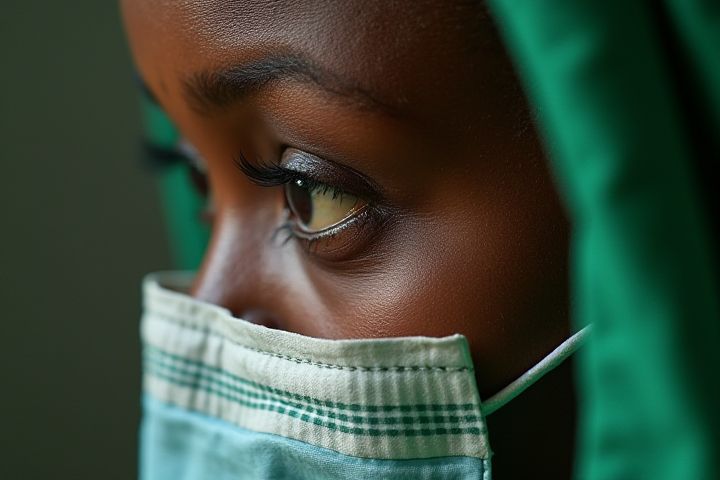
Nigeria has diverse regions with varying levels of safety, impacting Americans traveling there. Major cities like Lagos and Abuja have significant expatriate communities and international business opportunities, but they also face challenges such as petty crime and occasional civil unrest. Travelers should remain cautious and stay updated on local advisories regarding specific areas, especially in the North and the Niger Delta, which have higher risks of violence and kidnappings. Engaging with local contacts can enhance your understanding of the current safety landscape. Before visiting, ensure that you have comprehensive travel insurance and are informed about emergency protocols.
Travel advisories
Travel advisories highlight various safety concerns for Americans traveling to Nigeria, including the risks of kidnapping, civil unrest, and high crime rates in certain regions. The U.S. Department of State often issues updated alerts, urging travelers to remain vigilant and avoid specific areas, particularly in the northeastern regions affected by terrorism and violence. It is essential to stay informed about local laws, customs, and health precautions, as well as to maintain communication with local authorities and your embassy. Ensuring your safety involves thorough research and planning before departing for Nigeria.
Crime rates
Nigeria has varying crime rates across its regions, with some areas experiencing higher levels of violent crime, including armed robbery, kidnapping, and insurgent activities. Major cities like Lagos and Abuja have areas deemed relatively safe for expatriates, but caution is advised, especially in regions such as the Northeast, where terrorist activities are more prevalent. American citizens are often targeted due to their nationality, which can heighten personal safety concerns and increase the risk of opportunistic crimes. It is crucial for travelers and residents to stay informed about local security conditions and adhere to travel advisories issued by the U.S. Department of State.
Kidnapping risks
Nigeria has seen a significant rise in kidnapping incidents, particularly targeting foreigners and expatriates. Regions such as the Niger Delta and northern states experience heightened risks, as criminal gangs often carry out abductions for ransom. Security measures, including government efforts and increased military presence, aim to combat this issue but remain inconsistent across the country. When traveling to Nigeria, it's crucial to stay informed about local conditions and adhere to travel advisories to minimize your potential risks.
Terrorism threats
Nigeria has been significantly impacted by terrorism, particularly in the northeastern regions where Boko Haram and its splinter groups operate. These militant organizations have conducted numerous attacks, targeting both civilians and security forces, creating a precarious security environment. In areas like the Middle Belt and the Niger Delta, clashes between various ethnic and religious groups also pose risks, contributing to the overall instability. For Americans considering travel, it's crucial to stay informed about local conditions and follow guidelines provided by the U.S. State Department regarding safety and security.
Regional differences
Nigeria's safety for Americans varies significantly across its regions. The northern part of the country experiences higher security threats due to activities by extremist groups such as Boko Haram, leading to travel advisories for that area. In contrast, the southern regions, including Lagos and Abuja, generally offer more safety, although urban crime can still pose risks. Your travel plans should prioritize understanding these regional differences, as local conditions can change rapidly and affect safety.
Health concerns
Traveling to Nigeria involves several health considerations that Americans should be aware of. The country has a prevalence of infectious diseases such as malaria, dengue fever, and Lassa fever, making preventive measures like vaccinations and antimalarial medications essential. Access to clean water can be inconsistent, increasing the risk of gastrointestinal issues; therefore, using bottled or treated water is advisable. Staying informed about local health facilities and emergency contacts can significantly enhance your safety during your visit.
Local laws
Nigeria has a complex legal system based on traditional customs and modern statutes, which can differ significantly from American laws. Some local laws, particularly regarding dress codes, public behavior, and interactions between genders, may be stricter than what you are accustomed to. Additionally, Nigeria has regulations concerning freedom of speech and assembly that can lead to legal consequences if violated. Being aware of these local laws and customs can enhance your safety and facilitate a more respectful and enjoyable experience during your visit.
Cultural norms
Nigeria's diverse cultural landscape presents a rich tapestry of traditions that may differ significantly from those in the United States, influencing social interactions and daily life. Respect for elders and communal values is paramount, often shaping the norms surrounding hospitality and generosity, particularly in various ethnic groups like the Yoruba, Igbo, and Hausa. Understanding local customs, such as greetings and dress codes, can enhance your experience and foster positive relationships with Nigerian communities. Safety can be improved by remaining aware of your surroundings and engaging respectfully with cultural practices, thereby promoting a more secure and enriching visit.
Embassy resources
Nigeria presents unique safety challenges for Americans, particularly in certain regions with high crime rates and civil unrest. The U.S. Embassy in Abuja provides resources such as travel advisories, safety tips, and emergency contact information to help you stay informed and prepared. They offer on-the-ground support, including consular services and assistance in crisis situations. Engaging with the embassy's resources can enhance your understanding of the security landscape and help ensure your safety while in Nigeria.
Transportation safety
Transportation safety in Nigeria varies significantly by region, with urban areas like Lagos and Abuja often experiencing traffic congestion and a higher incidence of road accidents. Public transportation options, including buses and taxis, can be unreliable and unsafe, frequently lacking proper maintenance and adherence to traffic laws. For Americans traveling in Nigeria, using reputable ride-hailing services or private vehicles with trusted drivers is recommended to enhance safety. It's crucial to stay informed about local conditions and advisories, as well as to avoid traveling at night when risks tend to increase.
